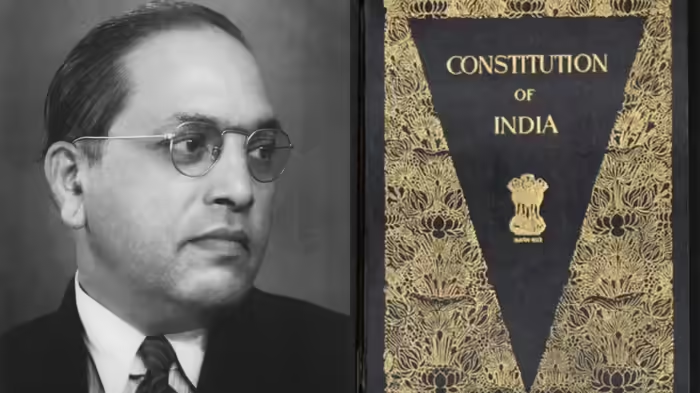
As India approaches the 75th anniversary of the enforcement of its Constitution—adopted on 26 November 1949 and implemented on 26 January 1950—an old and often misunderstood statement by Dr. B.R. Ambedkar has resurfaced:
“My friends say I have drafted the Constitution. But I am prepared to say I shall be the first person to burn it. I do not need it. It is no good for anyone.”
These words had once shocked the nation. People wondered how the principal architect of the Indian Constitution could express such anger. But very few know the true context behind this powerful remark.
The Man Behind the Constitution
Dr. B.R. Ambedkar, along with the Constituent Assembly and the Drafting Committee, studied nearly 60 constitutions from around the world before preparing India’s 251‑page Constitution. His intellect, vision, and moral authority made him one of the most respected figures in India’s democratic evolution.
Yet, Ambedkar did express the desire to burn the Constitution—something that many misunderstood.
Why Ambedkar Said It
The remark was made in 1953 during a heated debate in the Rajya Sabha on constitutional amendments. Frustrated by constant references to him as the “maker of the Constitution,” Ambedkar responded sharply:
“People keep saying, ‘Oh, you are the maker of the Constitution.’ My reply is: I was a hack. I did many things against my will.”
He added, in anger:
“I shall be the first to burn the Constitution. I do not want it. It is no good for anyone.”
Two Years Later, He Explained the Real Reason
On 19 March 1955, during the debate on the Constitution (Fourth Amendment) Bill, Ambedkar was questioned again about his earlier statement. This time, he explained it clearly—using a powerful metaphor recorded in the official Rajya Sabha debates.
Ambedkar said:
“We built a temple for the worship of a God. But before the God could be installed, the devil occupied it. What else can we do except demolish the temple?”
He clarified that the Constitution itself was not the problem—the problem was how people in power were misusing it.
Ambedkar’s Real Fear: The Tyranny of the Majority
Ambedkar believed that unchecked majoritarian power could crush the rights of minorities and marginalized communities. He feared:
- The powerful may dominate the powerless
- Constitutional provisions may be twisted to suppress weaker sections
- Democracy could be endangered if equality and justice are ignored
He stressed that a Constitution is only as good as the people who implement it.
His words were not a rejection of the Constitution—but a warning against its misuse.
What Ambedkar Wanted
Ambedkar wanted reforms, justice, and genuine equality. His call to “burn the Constitution” symbolized his deep frustration with those who sought to weaken safeguards meant to protect minorities and marginalized groups.
It was a metaphor—a dramatic expression of protest, not a literal intention.
A Warning That Still Echoes Today
Ambedkar’s message remains profoundly relevant. The Constitution can protect people only if those in power uphold its values. If misused, even a great Constitution can fail its citizens.
Ambedkar’s frustration reminds us of the eternal responsibility of democracy:
to protect the weakest, and to ensure justice for all.
Discover more from SD NEWS agency
Subscribe to get the latest posts sent to your email.
